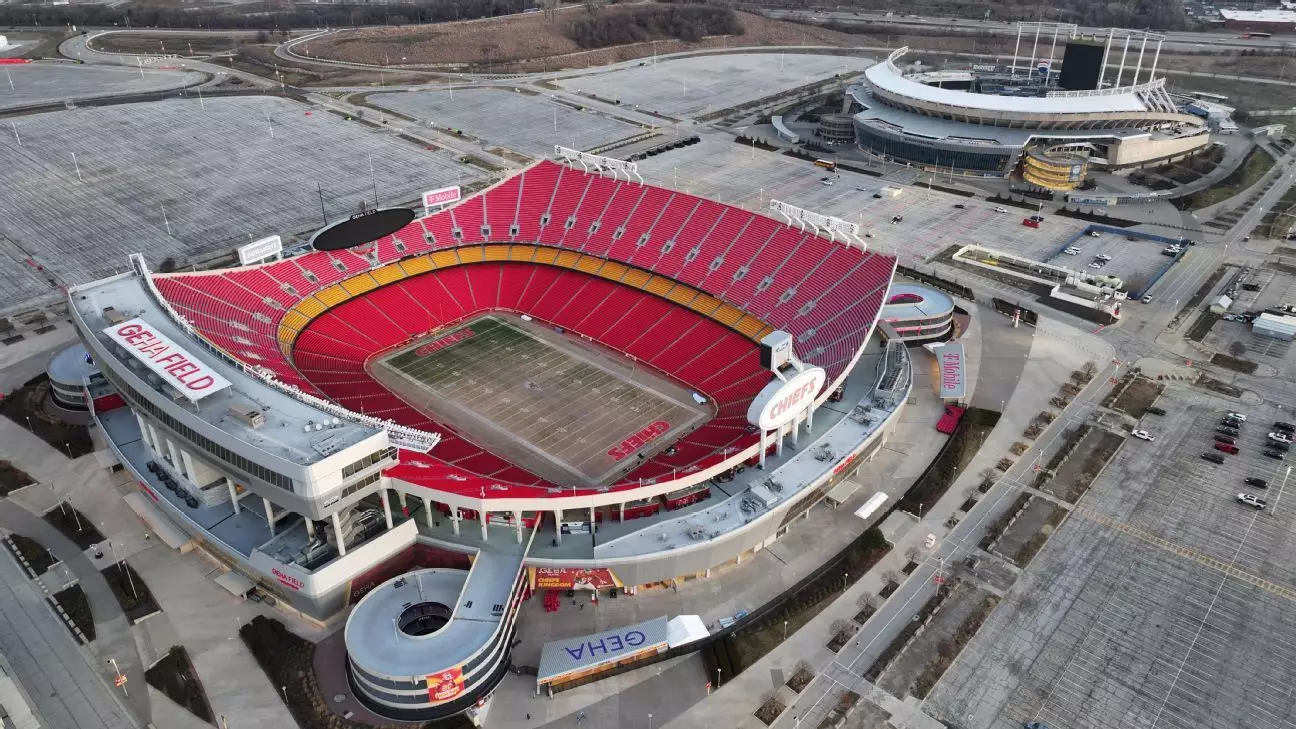In a powerful demonstration of legislative urgency, Missouri lawmakers have approved a significant aid package aimed at the tornado-affected areas of St. Louis, while simultaneously addressing the critical need to retain the state’s beloved sports teams. The recent approval of over $100 million in aid comes on the heels of severe storms that ravaged the city, causing an eye-watering estimated $1.6 billion in damage. Following the disaster, the Missouri Senate’s swift actions reflect not only a response to immediate community needs but also a strategic move to secure the long-term presence of the Kansas City Chiefs and Royals in Missouri. These efforts come as the teams face an impending deadline to accept an offer from Kansas, stirring a mix of hope and concern among local residents and fans alike.
The Motivations Behind Incentives
The proposed incentive plan, which includes hundreds of millions of dollars for stadium improvements, appears to be a gambit to prevent the exodus of beloved franchises across state lines. The Kansas legislature has already taken preliminary steps to fund new stadium projects, making Missouri’s counterproposals not only necessary but pivotal. Lawmakers in Jefferson City are not simply throwing money at a problem; they are trying to ensure that the economic and cultural value that comes with hosting these professional teams continues to benefit the state for years to come.
However, one must analyze the broader implications of funneling public funds into sporting infrastructure. Advocates, including Chiefs lobbyist Rich AuBuchon, argue that such investments lead to job creation and economic development. They tout the economic magnetism of stadiums as a reason for state-sponsored funding, citing examples from Baltimore to Nashville. Yet, one must question the sustainability and justification of such endeavors in contrast to pressing public service needs.
Economic Implications: A Double-Edged Sword
Despite the claims of local development, many economists remain skeptical about the true financial benefits of public funding for sports venues. Critics argue that funds spent on stadiums detract from investments in critical social services, infrastructure, and education. According to Patrick Tuohey from the Show-Me Institute, the prioritization of sports over essential services risks hollowing out Missouri’s tax base, leaving vital community needs unaddressed.
Tuohey’s points raise an uncomfortable yet valid inquiry: Should governments prioritize the needs and wellbeing of their residents over the desires of wealthy sports franchises? While the emotional and cultural ties to sports are undeniable, the financial implications for Missouri taxpayers could lead to negative repercussions in the long term. When cities and states engage in bidding wars for professional teams, they often find themselves caught in a cycle of fiscal compromise that prioritizes transient entertainment over essential community services.
Community Sentiment: A Balancing Act
As Missourians grapple with the aftermath of the storms, their communities are echoing a need for recovery and rebuilding, not solely based around sports. Lawmakers have introduced tax breaks and disaster relief as part of the incentive package, signaling an acknowledgement of the diverse needs of the public. Local voices are emerging, advocating for a balance between fostering professional teams and ensuring that the community’s immediate needs for safety, employment, and infrastructure take precedence.
Moreover, Kansas City stakeholders are acutely aware that the future of their teams should not come at the expense of community stability. The negotiations and discussions surrounding the Royals and Chiefs are reflective of a broader societal struggle to delineate public profit from civic responsibility, showcasing the complicated interplay between economic development and community welfare.
Overall, while the urgency of Missouri’s special session highlights the significance of the Chiefs and Royals to local identity and culture, it also raises imperative questions about the ethical and economic merits of using public funds to retain them. Maintaining a sports franchise is one aspect of public life, but prioritizing the community’s health, stability, and future should remain at the forefront of any legislative package.

